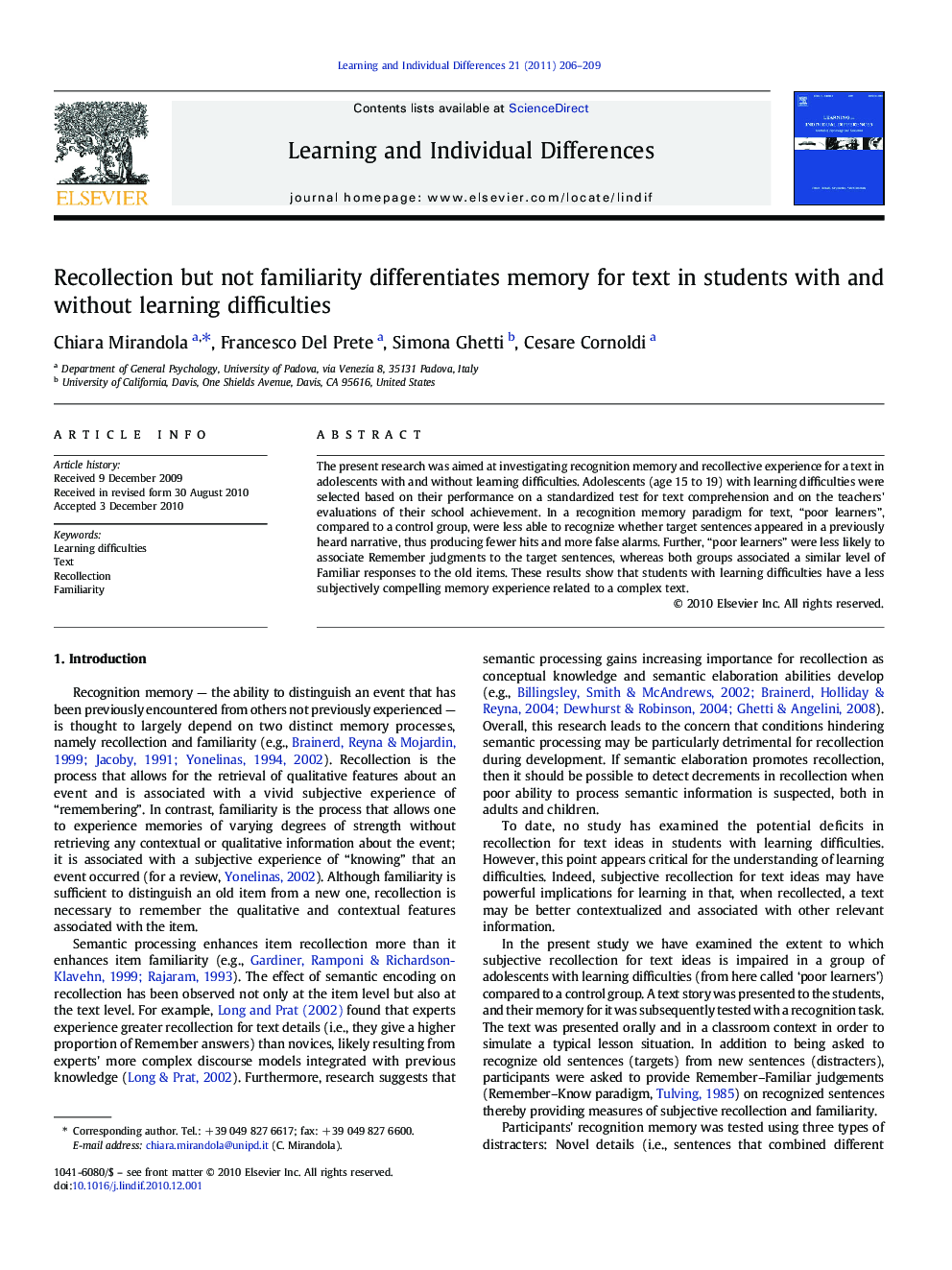| Article ID | Journal | Published Year | Pages | File Type |
|---|---|---|---|---|
| 365315 | Learning and Individual Differences | 2011 | 4 Pages |
The present research was aimed at investigating recognition memory and recollective experience for a text in adolescents with and without learning difficulties. Adolescents (age 15 to 19) with learning difficulties were selected based on their performance on a standardized test for text comprehension and on the teachers' evaluations of their school achievement. In a recognition memory paradigm for text, “poor learners”, compared to a control group, were less able to recognize whether target sentences appeared in a previously heard narrative, thus producing fewer hits and more false alarms. Further, “poor learners” were less likely to associate Remember judgments to the target sentences, whereas both groups associated a similar level of Familiar responses to the old items. These results show that students with learning difficulties have a less subjectively compelling memory experience related to a complex text.
Research Highlights►The Remember–Know paradigm may help us understand the difficulties of poor learners. ►Students with learning difficulties have a poor recollection of texts. ►Familiarity does not differentiate text recall of students with different abilities.
